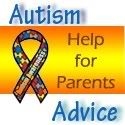Being a good parent is not an easy road and wreaks havoc on stress levels. In fact, parenting, although so important to the future of our kids, is one of the areas that professionals say causes the most stress in a person's life. Parents stress about their future and that of their kids, whether they are doing a good enough job, finances, future goals, parenting techniques, safety and well being of their kids, their health, their children's health, trying to keep up with incorporating a healthy lifestyle for themselves and their kids, meeting the demands of parenting, and the demands of their kids, cooking, keeping house, and above all else they stress about giving their kids certain comforts they may not have had when they were growing up, and not making the same mistakes their parents made, and let's not forget the automatic guilt that comes with parenting, whether warranted or not. Quite a list don't you think?
This level of stress in so many areas of daily life, can lead good parents into an overwhelming state of mind, thus causing an unhappy, agitated state, which definitely takes its toll on the well being of a person. This can interfere with parents being at their best for their children, their partner and themselves. It isn't fair - we have such an important job but with the responsibility comes an enormous amount of stress that actually ends up lessening our abilities. Too much stress takes away from us and thus takes away from our children. Turn the tables on stress, don't let it change who you are as a person or a parent. Take these 15 secrets and use them toward beating down your stress.
1. One thing we have nowadays that perhaps our parents did not have it an array of ways to reduce stress. USE THEM! Find the one that best suits you and engage yourself in calming your mind and body. Consider regular exercise, meditation techniques, yoga, outings with friends where you can be who you used to be before you had your kids. Taking time out for yourself is of huge value and it doesn't take long before you can feel the value in your life and your parenting.
2. Reach out and grab hold of the wonderful information that is out there to assist you in being a good parent, and help you through tough times in raising kids. Other moms and dads have lots to share and you will find that they alone, have more to offer in information than just the professionals. Don't let this information go to waste. Milk it for all it's worth.
3. Feeling overwhelmed is a common trait of parenting. Do not ignore it - instead get help to conquer it before it gets out of control. Forget what people might think, those people are going through the same thing you are and like you, they don't want anyone to know how hard they find parenting - this is a very common human trait. The smart parents are the ones who get the help when they need it and they are better parents and partners because of it.
4. When you feel the anger mode coming in - take a breathe, count to ten while slowly releasing your air. Breath slowly and controlled.
5. Take time every day to have a conversation with your child and build on good communication. This helps prevent conflicts, and aids in a better all around behaved child, thus preventing parental stress.
6. Keep your passions in your life. Do not let go of the things you love and need to keep smiling and thriving. Having children doesn't mean neglecting yourself or your needs.

7. Keep a social life with and without your partner. Having people you can relate to in your life is a gift. People need other people to share and rely on for whatever reasons. Do not close yourself off from the world and live only in mommy or daddy land. You are an adult, with wants and needs.
8. Be realistic in your expectations of your children. Have an awareness of raising children, the areas of maturity that encompass tough times and get a head start on them so that you don't feel overwhelmed and surprised when they fall upon you. Being prepared helps a person feel in control.
9. Avoid parental slip ups to avoid unnecessary parental stress.
10. Get proper sleep. If you aren't sleeping well take appropriate measure to deal with the problem. Don't just leave it and figure it's a part of parenting. It isn't. Getting proper sleep is of major consequence to the way the brain functions throughout the day. Not getting enough sleep is a stress causing factor on its own.
11. Do not ignore your health. If you have a recurring physical problem, or illness, no matter how afraid you might be you must bite the bullet, face your fear and address the problem. Remember that not everything is life threatening and most illnesses can be dealt with and fixed. In the back of your mind you will stress about an illness of health problem that you are not addressing. By addressing it you will be fixing it and dealing with it which is still better than ignoring it and then really having something to worry about later down the road.
12. Do not take on more than you can handle. If you are feeling overwhelmed with one child make an educated decision on when or if you will have another. Don't let your pregnancies pile up on you if you are not inclined that way. Take your time and don't let anyone or anything push you in a direction you are not ready for.
13. If you are having marital problems address them. Do not let them pile up and do not let them get the best of you. Remember also that your kids will learn how to be a partner themselves from the examples you and your partner set so address marital issues and get them sorted out. Do not be afraid to get professional help if you feel you need it. Professional marital assistance is extremely common and you may feel alone but trust me you are not. It's simply one of those things everyone hides.
14. Do not compare yourself to other parents and families. Everyone has different circumstances. What you may think looks so great in another family could very well simply be an act because everyone wants to look like the perfect parent in front of other parents. Every couple has their problems and every parent has their strengths and weaknesses. In society today, people don't want to share their shortcomings they just want to appear perfect.
15. Be aware of the areas of childhood that cause problems in a child's behavior, such as a poor diet, poor sleeping habits and too much television watching to name a few. These poor behavior causing areas will only add stress to your life and cause unnecessary friction as you try and get behavior under control. There are already plenty of time when as a parent you will have to deal with poor behavior from your children, there is no need to add anymore.
Parental stress is part of the parenting territory but that doesn't mean that you shouldn't do the necessary to limit this stress as much as possible and do the necessary things to help yourself perform well under stress and duress. Nip as much parental stress in the bud as you can, stress less, and parent at your best.
More parenting assistance
Weight Gain in Pregnancy Sets A Pace For Obesity
Every mom and mom to be needs to be aware of the findings of unnecessary weight gain in pregnancy. Please share this information.













































































